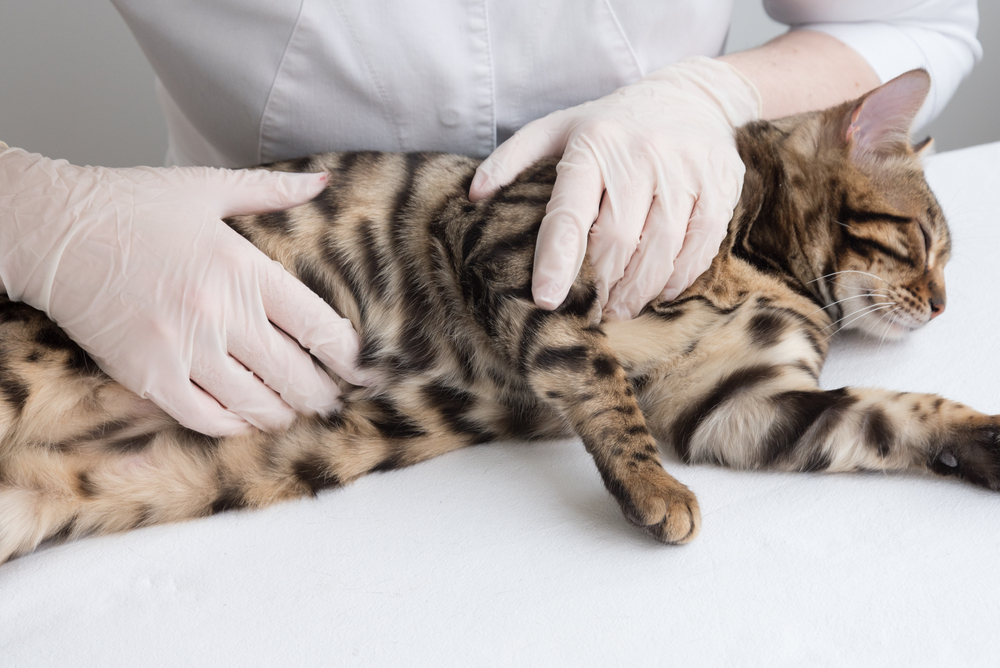When a pet experiences an abdominal emergency, time is of the essence. These situations often require urgent surgical intervention to save your pet’s life. Understanding the causes, signs, and treatment options can help you act quickly. At Alpine Animal Hospital, we provide expert emergency vet care in Pocatello, ensuring your pet receives the advanced care they need during critical times.
When Is Emergency Abdominal Surgery Needed?
Emergency abdominal surgery is often required for life-threatening conditions affecting the internal organs. Common causes include:
- Foreign Object Ingestion: Items like toys, bones, or clothing can block the intestines, requiring immediate removal.
- Gastric Dilatation-Volvulus (GDV or Bloat): A twisted stomach that cuts off blood flow and requires emergency surgery.
- Diaphragmatic Hernias: Trauma can cause the diaphragm to tear, allowing abdominal organs to move into the chest cavity, compromising breathing.
- Inguinal or Abdominal Hernias: Trauma or congenital issues can lead to hernias that may strangulate internal organs.
- Internal Bleeding: Caused by trauma or ruptured tumors on organs such as the spleen.
- Sepsis: A severe infection that can arise from ruptured abscesses, pyometra, or intestinal perforations from foreign bodies.
- Bladder Rupture: Often the result of trauma, causing life-threatening fluid imbalances.
- Intestinal Intussusception: When one part of the intestine slides into another, creating a blockage.
Signs to Watch For
Abdominal emergencies often present with subtle but critical symptoms. Watch for:
- Vomiting or diarrhea, especially with blood.
- A swollen or distended abdomen.
- Painful reactions to touch in the abdominal area.
- Pale gums, which may indicate blood loss or poor circulation.
- Difficulty breathing, rapid breathing, or signs of collapse.
- Loss of appetite and lethargy.
For more detailed emergency guidance, visit this helpful AAHA guide.
Steps to Take During an Abdominal Emergency
- Move Fast: Internal bleeding and other abdominal emergencies can cause a pet to deteriorate rapidly. Quick action is critical.
- Contact Your Veterinarian: Call Alpine Animal Hospital immediately for instructions.
- Transport Safely:
- Use a towel or blanket to support your pet’s body.
- Minimize movement to prevent further damage.
- Stay Calm: Remaining composed helps keep your pet calm as well.
What to Expect During Emergency Abdominal Surgery
At Alpine Animal Hospital, we provide comprehensive care during abdominal emergencies. Here’s what you can expect:
Initial Evaluation
- A thorough physical exam to assess the pet’s condition.
- Diagnostic tests, including digital radiology (X-rays), ultrasound, and in-house lab work, to identify the underlying issue.
Pre-Surgical Stabilization
- IV fluids, pain management, and medications to stabilize your pet for surgery.
The Surgical Procedure
- Depending on the condition, surgery may involve removing foreign objects, repairing hernias, addressing ruptured organs, or managing infections.
- In some cases, pets may require multiple surgeries to address complications or secondary injuries.
Post-Surgical Monitoring
- Pets with abdominal emergencies have a high risk of complications, such as infections or hidden injuries. Intensive monitoring in the hospital is essential to detect and manage these risks.
Recovery and Aftercare
After surgery, careful post-operative care is crucial to ensure recovery:
- Pain Management: Medications and therapies like laser therapy can help reduce discomfort and inflammation.
- Wound Care: Keep the surgical site clean and dry, and follow all veterinary instructions.
- Activity Restriction: Limit movement to prevent strain on the surgical area. Use crates or gates as needed.
- Nutrition: Reintroduce food slowly based on your veterinarian’s recommendations.
- Follow-Up Care: Regular check-ups are vital to monitor healing. Use our appointment request page for scheduling.
Preventing Abdominal Emergencies

While some emergencies are unavoidable, preventive measures can help reduce the risk:
- Pet-Proof Your Home: Keep harmful objects, toxic foods, and household chemicals out of reach.
- Spay/Neuter Your Pet: Prevent conditions like pyometra and certain cancers.
- Regular Check-Ups: Early detection of tumors or other health concerns can prevent emergencies.
- Supervise Outdoor Activities: Monitor your pet to prevent ingestion of foreign objects or trauma like being hit by a car.
Abdominal emergencies are serious, but with prompt action and expert veterinary care, many pets can recover fully. At Alpine Animal Hospital, we’re committed to providing advanced emergency vet care in Pocatello to help your pet through any critical situation.
For more information or assistance, visit our contact page or call us directly.







Leave A Comment